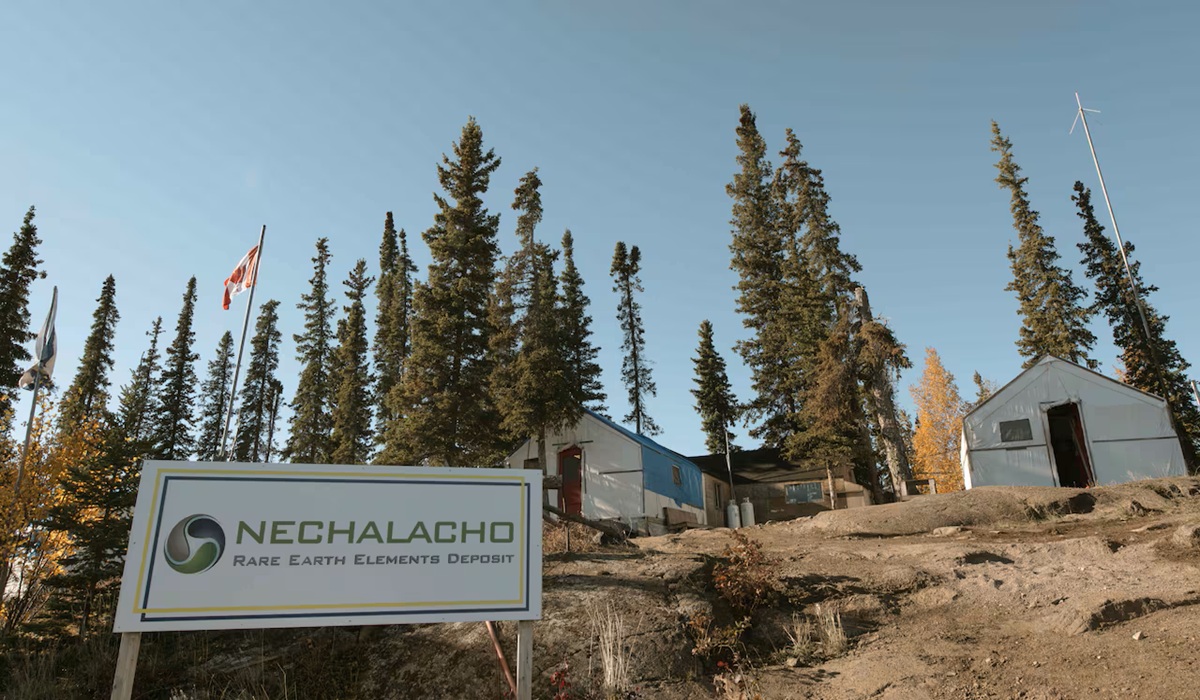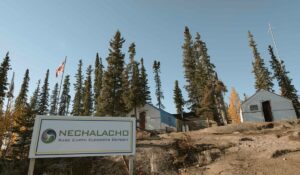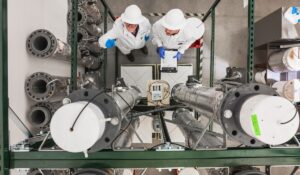Avalon Advanced Materials says a “next-generation” hydrometallurgical process has achieved high recovery rates on multiple rare earth elements from its Nechalacho project in Canada’s Northwest Territories in bench-scale testing.
TSX smallcap Avalon said Toronto-based Engina Corporation’s proprietary Hybrid Supercritical Refining (HSR) process demonstrated “overall rare earth recoveries exceeding 90% … across the full rare-earth element inventory present in Nechalacho concentrate under moderate operating conditions”.
The process, said to combine “unique caustic pretreatment” and supercritical fluid extraction, also exhibited reduced chemical consumption and environmental impact compared with conventional acid bake-water leach (ABWL) and molten caustic-cracking options previously assessed by Avalon. It said HSR was a largely closed-loop, water-lean system that used recycled CO2 as the principal extraction solvent.
Based on modelling and design targets, it might eliminate the need for sulphuric acid-plant operations, associated emissions and sulphate tailings and produce near-neutral, non-hazardous solids, Avalon said. Modelling also suggested HSR could cut the level of neutralisation waste generated by other hydrometallurgical circuits.
“The initial design and simulations developed by Engina show that the hybrid circuit is expected to offer a lower specific energy intensity than the ABWL or traditional caustic-cracking processes and may be evaluated for integration in Avalon’s Pine Point envisioned plant pending successful pilot-scale validation and subsequent engineering studies,” Avalon said.
“While the current HSR flowsheet delivered in the technology assessment focuses on rare earth extraction the process modelling indicates that the caustic pretreatment step converts zirconium- and niobium-bearing minerals into reactive forms.
“Optional downstream unit operations – not part of the current HSR configuration and not yet experimentally validated – could be developed to selectively recover these accessory critical minerals. These pathways may be evaluated in future engineering phases based on technical feasibility and economic merit.”
Nechalacho was the subject of a feasibility study back in 2013 and is said to have absorbed about C$100 million of investment.
“We are very thrilled for this breakthrough in the extraction of some of the most crucial rare earth elements,” Avalon CEO Scott Monteith said.
Engina Corporation’s Dr Gisele Azimi, a materials science and engineering professor at the University of Toronto where she is Canada research chair in urban mining innovations, said the venture was committed to working with Avalon to understand the technology’s full commercial potential.
“The Hybrid Supercritical Refining platform offers Avalon a genuinely new pathway for responsible rare earth extraction,” she said.
“Achieving high recoveries while reducing reagent use and environmental load is a rare combination in our industry.”








